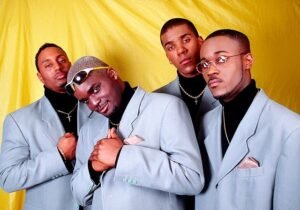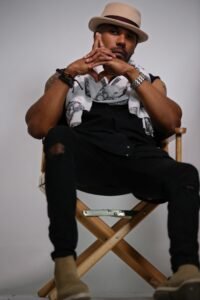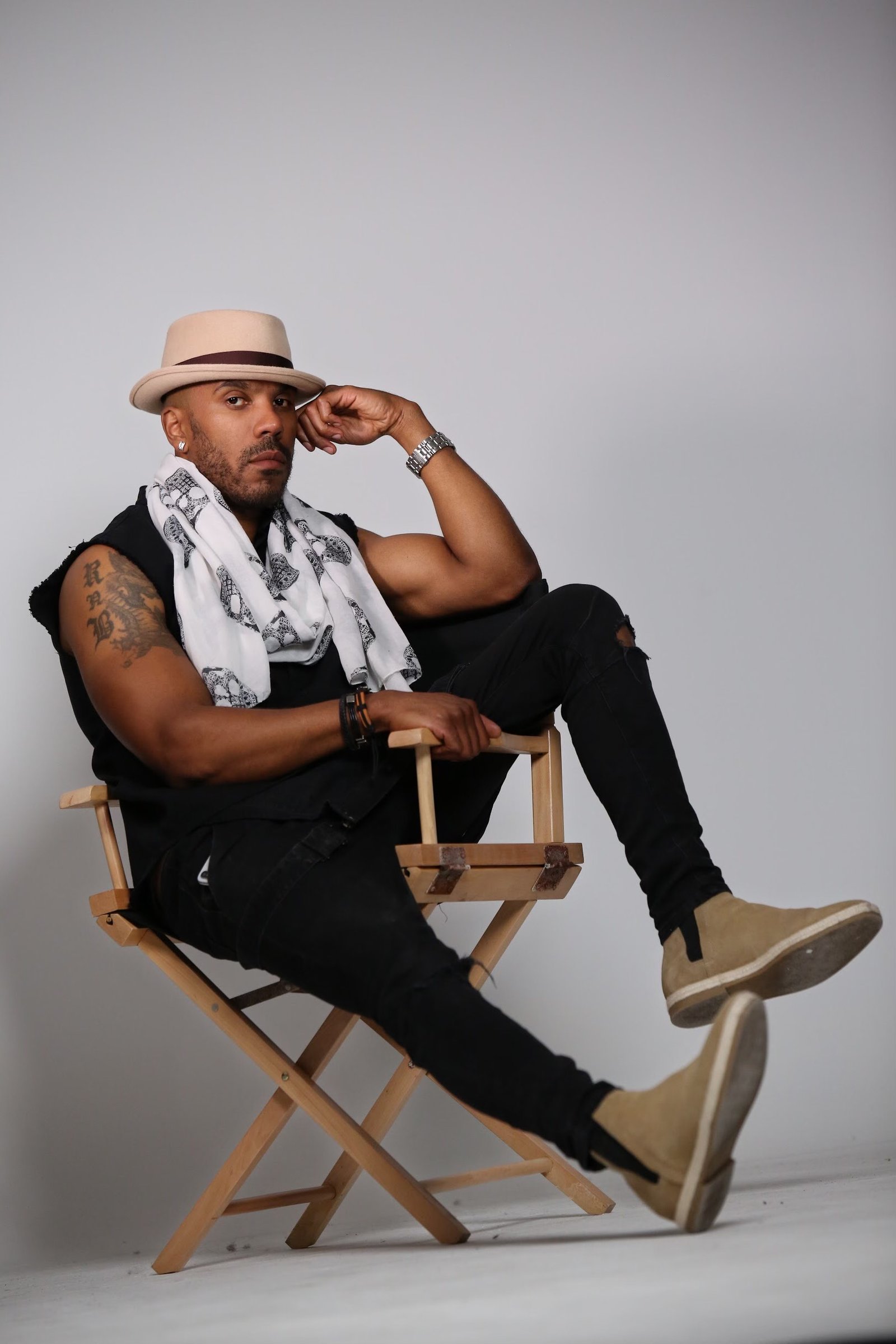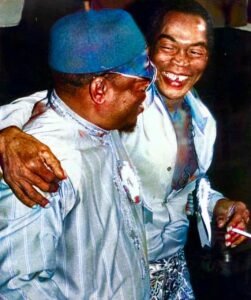Rudy Joseph (Poetic Lover) : “I was taught that a man doesn’t talk about his emotions”… Yet he spent his career singing them.
In 1997, the group Poetic Lover set French airwaves alight with their heartfelt music. Four voices, four silhouettes of Black men singing about love with sweetness and sincerity, in a French musical landscape still wary of diversity. Among them: Rudy Joseph, then aged 19. Today, at 47, he reflects on what it means to “be a Black man in the 21st century,” between heritage, emancipation, and vulnerability.
This is a rare, dense, intimate, and clear-eyed exchange. A conversation between Rudy Joseph, Sarah Kouaka, and myself (journalists). A moment conceived as part of a concept called We Love You Black Male that Sarah created around a strong theme: “the challenge of being a male in the 21st century.” This discussion will take place on June 22, 2025, at the NHA (Natural Hair Academy) salon with an all-male panel.
In advance, Rudy agreed to share some deep reflections. What he offers is an unfiltered look at what it means to “be a Black man today,” between heritage, emotions, status, and truth.
From the young “Poetic Lover” to the conscious man
Rudy Joseph was not yet 20 when he tasted fame. Far from the stereotypes often imposed on young Black men, he and his bandmates projected a sensitive, romantic, and composed image of masculinity. However, at the time, this identity dimension was not fully conscious. “We didn’t realize the symbolic impact of our presence. We admired American R&B groups, but we didn’t grasp what it meant to be a Black boy band in France,” he confesses.
It wasn’t until he was 30 that Rudy began deeply questioning his identity as a Black man in the West. Away from the stage, he embarked on an intimate reflection, nourished by his parents’ history as Caribbean immigrants, by sociology, and by his own journey as a “class defector.”

Singing love, yes… But talking about emotions, being vulnerable?
“I grew up with the idea that a man doesn’t talk about what he feels… yet I’ve spent my life singing about it.” This is the paradox Rudy Joseph has carried since childhood.Contrary to popular belief, he grew up with a present father, in a stable home. “My parents are still together. I had a courageous, hardworking father, but one who was not expressive about his emotions…”
A discreet heritage, linked to a specific context: parents who came from the Antilles to post-war France, where survival was the priority. “They didn’t have the luxury of talking about their feelings. You had to move forward.”
And as I grew up, I internalized the idea that a man must not show his weaknesses.
This model of the always-standing man, Rudy embodied it for a long time without knowing why, without questioning it… But distance, maturity, and fatherhood have led him to understand the reasons behind what remains, for him, undeniable: “a man
must not show his vulnerability.”
Status as a measure of manhood
When asked what it means to be a Black man today, Rudy doesn’t start with the question of race.
For him, the masculine condition is first seen through the lens of standard of living, access to resources, and the ability to “provide.” Yet, he acknowledges that for Black men, this race for status is doubly difficult due to the history of Afro-descendants or Africans in an environment where they had to adapt.
“The real difference is social, not just racial. A man who doesn’t rise economically doesn’t exist. Black, white, or otherwise.”
This is what determines, in his eyes and in the eyes of others, the value of a man. And it’s even more pronounced in romantic relationships.
“A man is defined by what he brings. What he can build. What he owns. In a couple too, love alone is not enough. It’s his position in the world, his social status.”
He says it plainly: “You can be kind, attentive, sensitive… if you don’t have status, if you’re in a precarious situation, even love becomes complicated.” The romantic ideal, he’s sung about it… But reality has shown him something else. “A man without financial footing, even in a relationship, is not fully respected.”
Rudy doesn’t accuse. He observes. He understands the dynamics, but refuses hypocrisy. For him, the pressure is structural. Being a man means always having to prove your worth. And when you’re Black, this pressure is even heavier.
Fatherhood and transmission
 A late father, Rudy chose to have a child when he felt ready. Truly ready.
A late father, Rudy chose to have a child when he felt ready. Truly ready.
At the time of this discussion, his six-month-old son is with him in another room during the conversation. “With my career, I had to make a choice, and I wanted to be a present father. Not just physically. But to be there.”
When his mixed-race son is born, Rudy is moved, but also unsettled. “He was very light-skinned. I asked myself: will he recognize himself in my story?”
This moment awakens in him a realization: it’s no longer just about loving, but about transmitting an identity, a memory, the ability to define oneself as a man. He will face the challenges of his time with a different history from mine, just as my challenges are different from my father’s. “I want my son to start where I left off.”
The real challenge of being a Black man…
At the end of the conversation, Rudy formulates what he sees as the heart of the problem: “The real challenge today is to be a Black man in a Western paradigm.”
He explains that this society has its codes, its standards, its values… and it was never designed to include us. “We seek to be accepted, but we will never be fully so. We are always assigned a role, a distance, an exception.”
He then speaks of a false quest: that of recognition that never comes, of belonging without reciprocity. “We exhaust ourselves trying to be ‘model men,’ but the model is not ours.”
Today, he wants to build something else. A model of man who owns up to and is aware of his true identity above all.
Rudy Joseph is no longer just a voice of French R&B. He is a man who has taken the time to understand himself, to deconstruct himself, to reclaim his place.
What does it mean to be a Black man in the 21st century ? What are the challenges ?
This is the question from Sarah Kouaka’s panel called “We Love You Black Male”. Through this concept, she wants to give the opportunity to men to speak out as well. And you, what do you think?
And for anyone nostalgic for Poetic Lover’s tunes, you can enjoy their live performances at festivals across France all summer!





